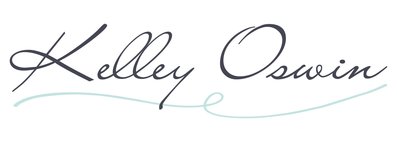|
My husband is a firefighter and I am a counsellor, we both run The Rescuer Archetype in the work we do, however I see the shadow aspects show up more often in helping profession of counselling, coaching and therapy. Let me explain…. Caroline Myss, one of the leaders in Archetypes along with Carl Jung, teaches us that the Rescuer assists when needed and once the “rescue mission” is accomplished the rescuer withdraws. A Rescuer can provide support and strength when others in are in a crisis situation or lack the know how to move through difficulties. The operative words there being withdrawing when the mission is accomplished. You see in my husbands line of work they always withdraw after mission completion but do you as a counsellor, coach or therapist? Or perhaps it shows up in personal relationships with family and friends? Where those in the helping professions run risks in terms of burnout is when the shadow aspects of this archetype show up. It can show up in the unconscious need to be needed and keeps the “rescuee” in the need of being rescued. The need to be needed or the thoughts that “it can only be me” “, "it has to be me”, “no one can do it as well as me” perpetuates the inability to set boundaries and say no to ongoing requests, leading to burn out and compassion fatigue. Not being willing to say no creates the illusion that it becomes more and more difficult to say no. Essentially and inadvertently taking the power away from the clients we are working with. Being readily available to meet all requests and needs causes us to expand and extend beyond what is healthy and good for us. 5 Tips for Managing Rescuer Archetype Burn Out Boundaries: You’ve heard it a million times. You teach people how to treat you but here’s the thing you also teach people how to treat themselves. When you model a lack of boundaries no matter what you teach your actions speak louder than words. Remember the old saying “Children do what you do not what you say”. Well the same is true for adults. Words become useless if you’re not modelling. Time Management: You do not have to pack everything into one day! I used to tell the counsellors that I supervised all the time, do you expect when you call your doctor that they will get you in that day? Yes it’s great if they absolutely can but for the most part we understand that that is not always possible. Spread your workload out. Schedule space between appointments. Sometimes more space is needed than appointments depending on the nature of your work. Set Priorities: You get to decide what to prioritize. Stay plugged into the things and people you choose but unplug from those that are simply draining your energy. Set limits and prioritize based on needs. Say NO: Once again this is all about modelling. We’ve all heard it “no” is a complete sentence. Avoid justifications or creating any loop holes. Rest: Avoid saving all your down time for a vacation! You need to build it time to shut down and take care of just you. Shut off the phone, shut off the electronics daily at a specific time, hours before you go to sleep. When you have extended far beyond yourself and you’re burning out then it is time to pull all that energy back in. Turn it inward and give to yourself. "Your clients survived before you and they will survive after you" - Kelley Oswin Kelley Oswin is a Counsellor and Clinical Supervisor with over 20 years experience in the field of Social Work and Counselling. Now in private practice Kelley is taking her knowledge and tools and creating more support systems for those in the helping professions, to ensure that they are well taken care of while doing the work in the "frontlines".
2 Comments
|
Archives
May 2018
Categories |
Photo used under Creative Commons from jane.garratt♥



 RSS Feed
RSS Feed
